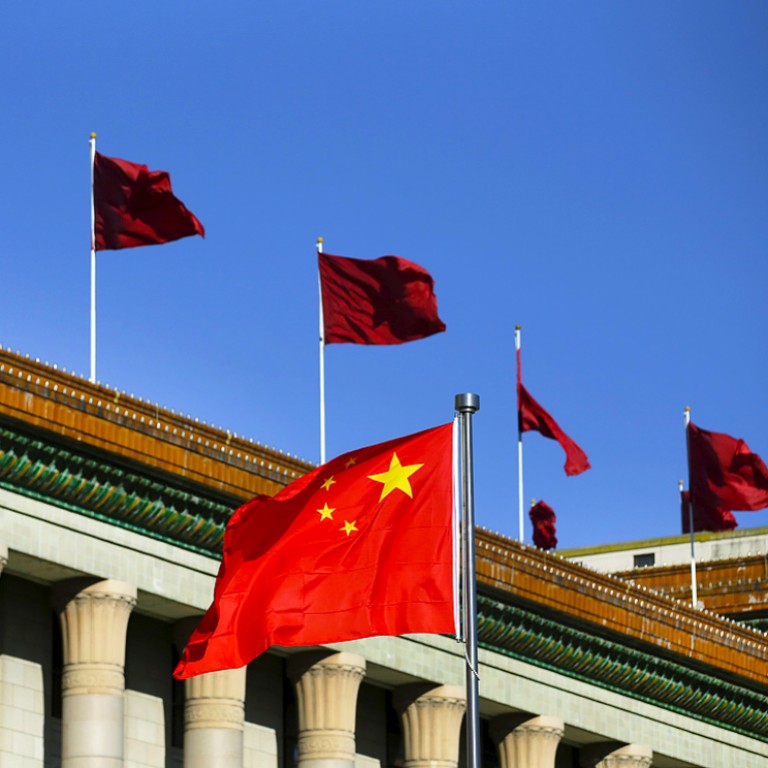
New | Better, faster, stronger: China's new ambitious five-year plan aims to make the nation more efficient
The new five-year plan has laid out major targets, pushing the nation to become faster, better and stronger to boost its slowing economy
Higher quality, greater efficiency - these are China's aims for its development over the next five years as it tries to steer its economy along a more innovative path.
"We must focus on developing better quality and efficiency, based on innovation," the ruling Communist Party said after its annual policymaking meeting last week.
In a draft proposal detailing the country's next five-year plan until 2020, the party said: "We must nurture new incentives for development, optimise the allocation of the labour force, capital, land, technology and management, as well as inspire innovation … to seek new forces that drive development."
READ MORE: Eight ways the next five-year plan will change China: Blueprint for nation's development explained
The paper, released by state-run Xinhua yesterday, was approved by the fifth plenum of the party's 18th Central Committee last Thursday.
"It's a very ambitious plan, which may reflect the present leadership's new ideas, in particular those of President Xi Jinping ," said Shen Jianguang, chief China economist with Mizuho Securities Asia. "There is a new focus on quality, innovation and 'green' development."
But innovation could not be planned as it was spontaneous by nature, Bank of Communications chief economist Hong Hao said. "Top-down government- planned innovation assumes that the government knows better than the market where future growth will be. It … may not achieve the desired results," said Hong, who is also the bank's managing director of research.
In a speech to last week's plenum, Xi, who is also the party's general secretary, said China's annual economic growth over the next five years should be at least 6.5 per cent. The target was necessary to "realise China's goal of doubling gross domestic product and per capita income by 2020 on the basis of 2010".
The president called for quality growth, noting that it would be challenging for the country to meet some institutions' growth forecast of 6 to 7 per cent amid weak global trade and slow expansion in domestic investment and consumption.
"China's development should not just be focused on growth pace, but also growth volume, and, more importantly, growth quality," Xi said.
Xi is the first party chief to lead the drafting of the paper on the five-year plan, and thus also the first party chief to report to the Central Committee on the plan. It has traditionally been the premier's duty to lead the draft work on the plan.
Given the growth target, Hong said, the government would have to continue to rely on capital investment to boost growth. "Help from investment growth will still be needed from time to time to achieve the target, because … the government still has good control [over investment]," he said.
In the draft proposal for the five-year plan, the party said efforts were needed to transform the country's growth model, optimise the structure of the industrial sector, promote innovation, step up agricultural modernisation, improve living standards and expand support for the poor, among other goals.
The party would improve the income distribution system with the aim of narrowing the income gap and increasing the proportion of the middle-income population in the next five years, according to the document.
Underscoring its determination to fight poverty, the party pledged to step up financial support for impoverished areas and accelerate plans to introduce a more comprehensive income tax system, among other measures.
China faced difficult challenges in eliminating poverty in its rural areas as it worked towards building a "moderately prosperous society", the paper added.
The draft proposal promised to deepen household registration reforms to allow more rural migrant workers to live and work in the cities. It suggested further improving the housing system and stepping up efforts in transforming shanty towns and precarious living conditions in both urban and rural areas.
The government will also liberalise competition in the natural gas, electricity, oil and telecommunications sectors, according to the document.

